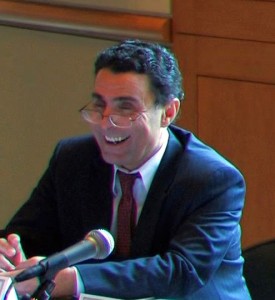
If you lived in Verona in the 1970s, 1980s or 1990s, the name Celentano should bring back a flood of food memories. The smell of the salamis and oregano, the shelves with their exotic jars of rum babas, the frozen case with a seemingly endless supply of stuffed shells and eggplant parmigiana. Celentano Bros., based in humble Verona, became the second largest Italian prepared food brand in the country.
Domenick Celentano was a big part of the company’s growth during those three decades, serving in virtually every position from marketing and manufacturing to the corner office. He knows what it’s like to build a retail food business and he’s been spending his time lately sharing that wisdom, teaching at two area colleges and, most recently, launching a Web-based training program for food entrepreneurs, the FoodPreneur Boot Camp.
The idea for the boot camp came to Celentano in his small business management classes at Fairleigh Dickinson University and Kean University. “I kept using food and retail examples in my courses and I thought, wouldn’t it be great if there were some place people could go to learn the basics of those businesses?”
Working with Esther Luongo Psarakis, the founder of the Greek food importing and manufacturing company Taste of Crete, he developed the boot camp as an in-person seminar. But Celentano had been drilling into his students that the keys to success in food entrepreneurship are scalability and replicability, and knew he had to do more to build the new business. “Late last year,” he says, “I decided to take my own advice. There are many more students nationwide.”
Using two-way videoconferencing from DimDim, the pair restructured the seminar as an interactive Webinar. The first class this spring was deliberately small so Celentano and Luongo Psarakis could work out the kinks. Registration is now open for the fall session, which will be limited to 10 students. But Celentano plans to greatly expand the $350 class come spring 2011.
The goal is to help students take an idea and turn it into a money-making opportunity. “We see people spending a lot of money on things that they believe to be important,” says Celentano, “money that would be better spent on something else later.”
It’s clear that Celentano also wants to help food entrepreneurs avoid the mistakes that sink many companies. “The odds are stacked against a family business surviving from one generation to the next,” Celentano says. It’s wisdom born of experience: Celentano Bros. made a voluntary Chapter 11 bankruptcy filing in 1999 and its assets were sold a year later to Rosina Food Products of Buffalo.
What’s past is past, though, and Domenick Celentano wants to stay focused on the future. “Some people have spent tens of thousands of dollars developing a food business and still don’t really have anything more than an idea,” he says. “I want to change that.”

